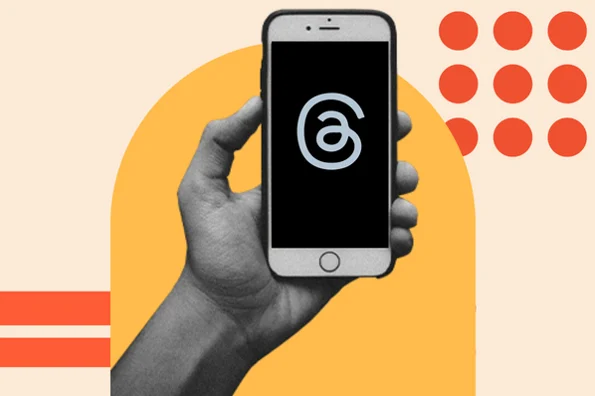by Martina Bretous for HubSpot
In early July, Instagram released its latest app Threads and immediately captured everyone’s attention. Thirty million people’s attention to be exact.
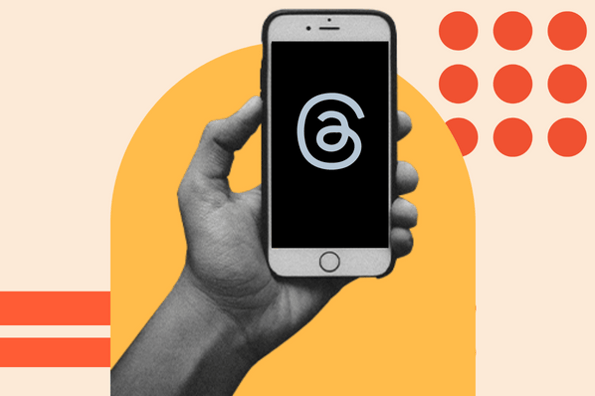
Download Now: The 2023 State of Social Media Trends [Free Report]
Within 10 days, Threads had reached a whopping 100 million active users, even trending on Twitter, the incumbent.
Let’s dig into:
What is Threads?
Launched in early July, Threads is Instagram’s text-based conversation app. Currently, the platform is fully integrated with Instagram, with users required to have an account to access Threads.
This is likely why Threads took off so quickly, growing more than five times faster than the previous record holder for fastest growing app, according to Business Insider.
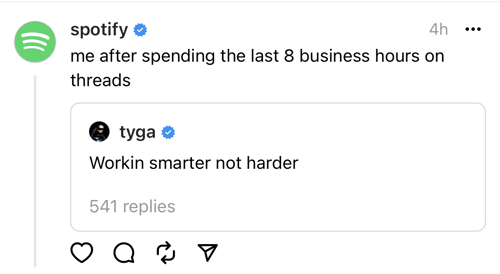
Users can easily transfer their profile information and their followers to their Threads account, removing friction and making app adoption easy.
In addition, users can embed Thread posts into their Stories and profile bios, which is sure to generate more interest in the new app.
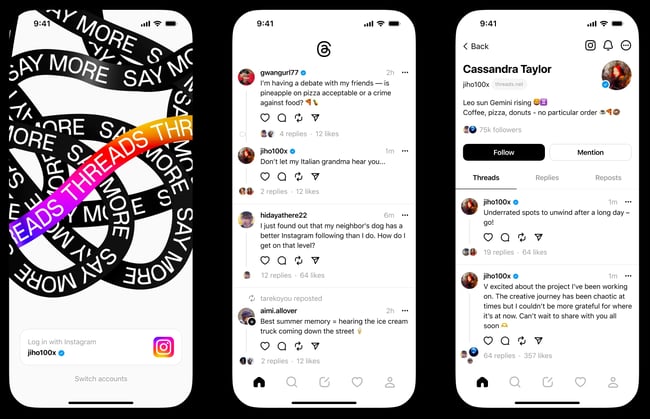
The platform came at a time when Twitter (now rebranding to X) is undergoing both technical issues and cultural shifts under Elon Musk’s leadership.
The platform had already been suffering from a reputation of being one of the most toxic apps on the internet. Now, Threads came out and in their press release, they pledged to “enable positive, productive conversations.”
Mark Zuckerberg even called Twitter out directly on this:
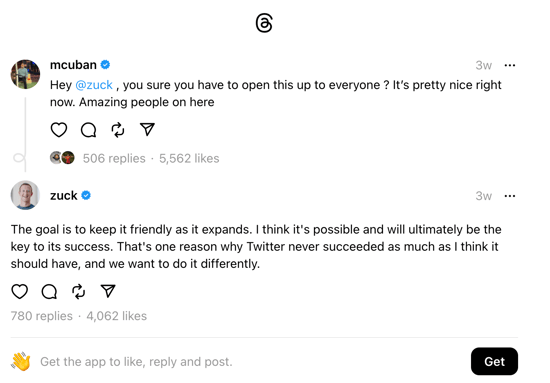
How To Create a Profile on Threads
1. Sign in with your Instagram account and click Join.
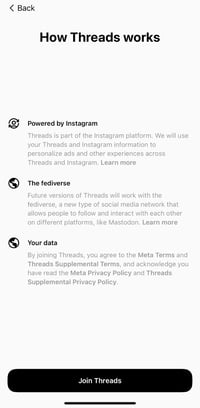
2. Customize your profile.
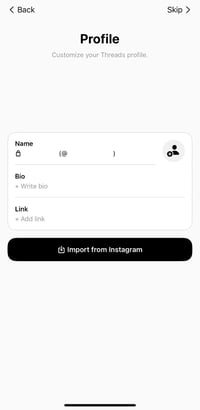
In this step, you can choose to import your bio details from Instagram.
3. Choose a private or public profile.
Users 16 years old (or 18 in some countries) will be defaulted to the private profile.
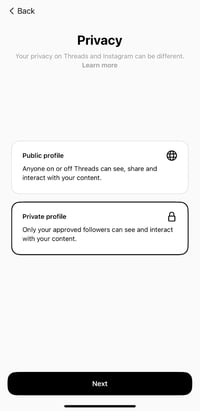
4. Decide who you’ll follow.
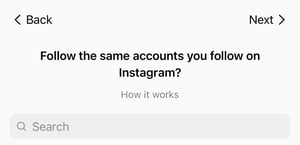
5. You’re all set.
So, how is Threads different from Twitter? Let’s dive in.
Key Features on Threads
On Threads, users can posts text up to 500 characters, share photos, and publish videos up to five minutes.
There are current five tabs:
- The feed, where users will see posts from followers as well as other users.
- The search tab, where users can navigate to specific profiles.
- The new post tab, where users can start a thread.
- The activity tab, where users can see their follow requests, replies, likes, and mentions, quotes, and reposts.
- The profile tab, where users can see their own profile and make changes.
User interface-wise, it’s hard to tell the rival apps apart. They’re so similar you could think Threads was Twitter after a major update.
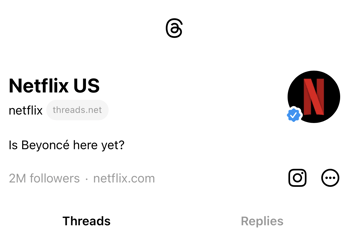
The app features buttons for likes, replies, reposts, and of course, threads. However, it’s still pretty limited in terms of functionality.
Currently, users cannot:
- Scroll through a feed with just their followers.
- Send direct messages or access any DM features.
- See trending topics and/or stories.
- Use hashtags.
- Edit their posts after publishing.
- Search to find conversations.
- Switch accounts (a major downside for social media managers)
- Access a full-navigational desktop version.
After that initial climb to 100 million users, a recent BBC article reports that more than half of users have dropped off. But Zuckerberg isn’t worried.
“If you have more than 100 million people sign up, ideally, it would be awesome if all of them, or even half of them, stuck around. We’re not there yet,” he said.
Meta is reportedly working on updates to add new features, specifically retention-driving hooks, as reported by the BBC.
What does this mean for marketers?
Stay ready so you don’t have to get ready.
A lot is happening in the text-based social space. With Twitter’s latest rebrand, some – or many – users may be pulled to platforms like Threads.
Social platforms come and go. Before there was Threads, there was Mastodon, Spills, Hive Social, Blue Sky (and many more) – most of which are still active and growing their user base.
Given the scale and reach Meta has, Threads was able to outperform most of its competition soon after launch. So, it has a stronger chance of sticking.
So, don’t wait until that learning curve gets steeper. Start now while everyone is exploring.
This doesn’t mean strategy just yet – observe. How are users interacting? How are your competitors approaching this?
This is the prep work that’ll allow you to pivot and strategize if and when the time comes. And if we’re talking about Meta, that time always does.
